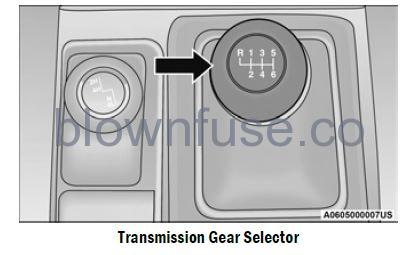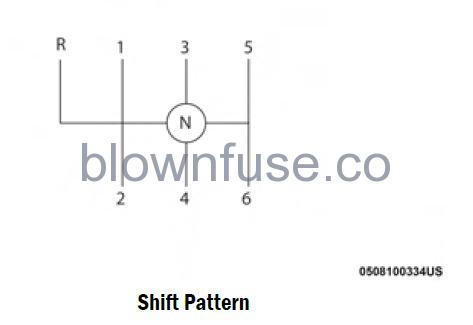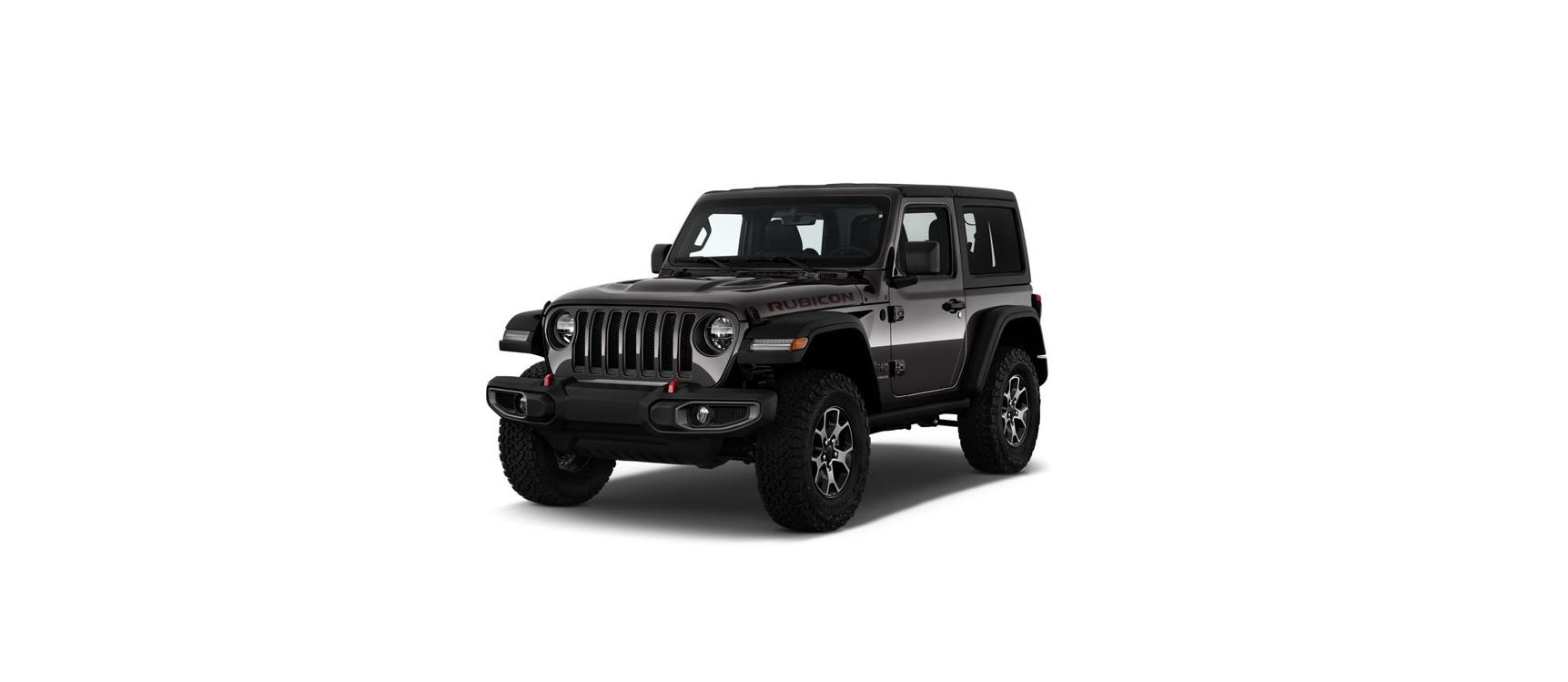2022 Jeep Wrangler Manual Transmission
 MANUAL TRANSMISSION — IF EQUIPPED
MANUAL TRANSMISSION — IF EQUIPPED
WARNING
You or others could be injured if you leave the vehicle unattended without having the parking brake fully applied. The parking brake should always be applied when the driver is not in the vehicle, especially on an incline.
CAUTION
- Never drive with your foot resting on or partially depressing the clutch pedal. Never attempt to hold the vehicle on a hill with the clutch pedal partially engaged. Operating a vehicle in this manner may cause the clutch to overheat and cause permanent damage to the clutch. If you continue to operate the vehicle in this manner, the “CLUTCH HOT” message or Transmission Temperature Warning Light will be displayed in the instrument cluster. For more information Ú page 128.
CAUTION
Do not drive with your hand resting on the gear selector as the force exerted, even if slight, could lead over time to premature wear of the gearbox’s internal components.
NOTE
During cold weather, you may experience increased effort in shifting until the transmission fluid warms up. This is normal.
To shift the gears, fully press the clutch pedal and place the gear selector into the desired gear position (the diagram for the engagement of the gears is displayed on the handle of the selector). The engaged gear will be displayed in the instrument cluster.
To engage REVERSE gear from the NEUTRAL position, lift the REVERSE ring, located below the knob and move the gear selector all the way left and then forward.
SHIFTING
- Fully press the clutch pedal before shifting gears. As you release the clutch pedal, lightly press the accelerator pedal.
- You should always use FIRST gear when starting from a standing position.
NOTE
A certain amount of noise from the transmission is normal. This noise can be most noticeable when the vehicle is idling in NEUTRAL with the clutch engaged (clutch pedal released), but it may also be heard when driving. The noise may also be more noticeable when the transmission is warm. This noise is normal and is not an indication of a problem with your clutch or transmission.
Recommended Vehicle Shift Speeds
To utilize your manual transmission efficiently for both fuel economy and performance, it should be upshifted as listed in recommended shift speed chart. Shift at the vehicle speeds listed for acceleration. When heavily loaded or pulling a trailer, these recommended up-shift speeds may not apply.
| Manual Transmission Shift Speeds in MPH (KM/H) | ||||||
| Engine | Speeds | 1 to 2 | 2 to 3 | 3 to 4 | 4 to 5 | 5 to 6 |
| 3.6L | Accel. | 15 (24) | 24 (39) | 50 (80) | 65 (104) | 70 (112) |
| Cruise | 10 (16) | 19 (31) | 40 (64) | 55 (88) | 65 (105) | |
NOTE
Vehicle speeds shown in the chart above are for 2H and 4H only. Vehicle speeds in 4L would be significantly less.3
DOWNSHIFTING
Moving from a high gear down to a lower gear is recommended to preserve brakes when driving down steep hills. In addition, downshifting at the right time provides better acceleration when you desire to resume speed. Downshift progressively. Do not skip gears to avoid overspeeding the engine and clutch.
NOTE
The manual transmission shift system is equipped with gear blockers, which will prevent downshifts into FIRST or SECOND gear above certain vehicle speeds.
WARNING
Do not downshift for additional engine braking on a slippery surface. The drive wheels could lose their grip, and the vehicle could skid.
CAUTION
- Skipping gears and downshifting into lower gears at higher vehicle speeds can damage the engine and clutch systems. Any attempt to shift into lower gear with the clutch pedal pressed may result in damage to the clutch system. Shifting into a lower gear and releasing the clutch may result in engine damage.
- When descending a hill, be very careful to downshift one gear at a time to prevent over-speeding the engine which can cause engine damage, and/or clutch damage, even if the clutch pedal is pressed. If the transfer case is in the low range the vehicle speeds to cause engine and clutch damage is significantly lower.
- Failure to follow the maximum recommended downshifting speeds may cause engine damage and/or damage to the clutch, even if the clutch pedal is pressed.
- Descending a hill in low range with the clutch pedal pressed could result in clutch damage.
Maximum Recommended Downshift Speeds
CAUTION
Failure to follow the maximum recommended downshifting speeds may cause the engine to Overspeed and/or damage the clutch disc, even if the clutch pedal is pressed.
| Manual Transmission Downshift Speeds in MPH (KM/H) | |||||
| Gear Selection | 6 to 5 | 5 to 4 | 4 to 3 | 3 to 2 | 2 to 1 |
| Maximum Speed | 80
(129) |
70
(113) |
50
(81) |
30
(48) |
15
(24) |
NOTE
Vehicle speeds shown in the chart above are for 2H and 4H only, vehicle speeds in 4L would be significantly less.

